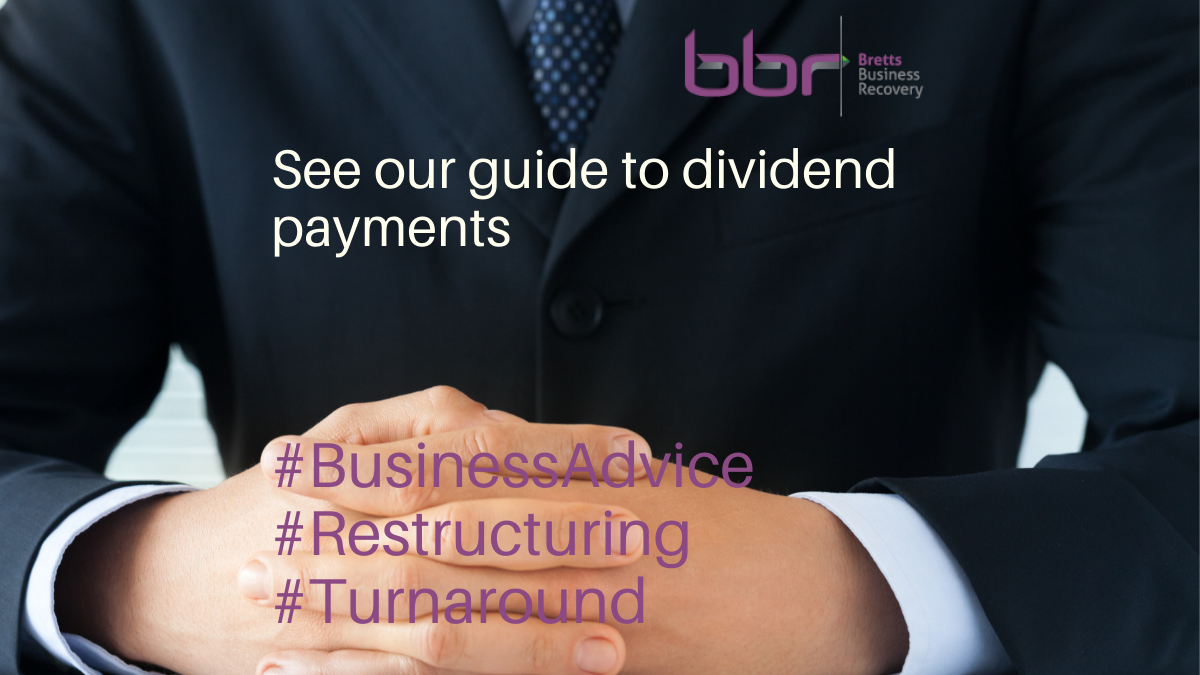Director dividends – how to ensure they are legal

One of the benefits of running a limited company is that Directors can take the majority of their remuneration as dividends, which is typically a more tax efficient method than taking a PAYE salary. The timing of dividend payments must be carefully considered however, as it can expose directors to risk of personal liability if they’re subsequently found to be unlawful.
The points below need to be considered before any dividend payment is made:
- What’s your profit?
Have you made a profit in your company which you are able to take out as a dividend? If there are insufficient funds to support the payment it will be counted as “ultra vires” -ie not legal. The Companies Act 2006 requires dividends to be paid out of “profits available for the purpose”. These are the company’s accumulated realised profits less its accumulated realised losses.
- Reference your Accounts
Dividends must be justified with reference to your prepared accounts to see what profit you have made and therefore whether you have sufficient funds to take as a dividend. The accounts could be: your company’s last annual accounts; interim accounts or, if the dividend is being declared in the company’s first accounting period, “initial accounts”. They should however be recent accounts from which you can make an informed decision as to the company’s current financial position.
- Distributable Reserves
You will need to determine the level of reserve funds you have that are available for distribution. Do you need to reinvest profits or reserve for other reasons? It’s advisable to seek professional guidance prior to declaring a dividend. Using an incorrect figure from the company’s accounts is sometimes an issue when calculating whether a dividend can be paid. Additionally, corporation tax must be deducted from the company’s profits to arrive at the figure for distributable profit.
- Cash?
Do you have enough cash available to make a dividend payment and when exactly will you pay it? Directors must be satisfied that, even if there remain sufficient distributable profits to pay the dividend, the company still has cash available to be able to meet its ongoing debts and liabilities.
- Declare Dividend and Vote
Other conditions also have to be met before a dividend payment can be considered lawful, including a meeting of the board. This should be held to consider the level of distributable profits available, and to ‘declare’ the dividend. A Vote should be taken by the shareholders and recorded to agree the dividend payment.
- Minutes and Record Liability
The minutes of the meeting as well as a record of the vote need to be kept. These can be provided to HMRC if there is any question in the future about the legality of the distribution of dividends. You also need to record the dividend as a liability.
- Dividend Voucher
A dividend voucher with your company’s name, date, total amount payable, and details of the shareholders who will receive it, should also be issued to recipients.
- Pay the Dividend!
Once all these points of process have been followed, the dividend can then be paid! Don’t forget that you can’t retrospectively go through these processes once a dividend has already been issued.
It’s worth noting that for directors, the dangers of issuing unlawful dividends increase considerably if a company enters insolvency, whether or not their payment caused the company’s financial decline. If you’re worried about a dividend payment that may be regarded as unlawful, please do get in touch with us for a free consultation.